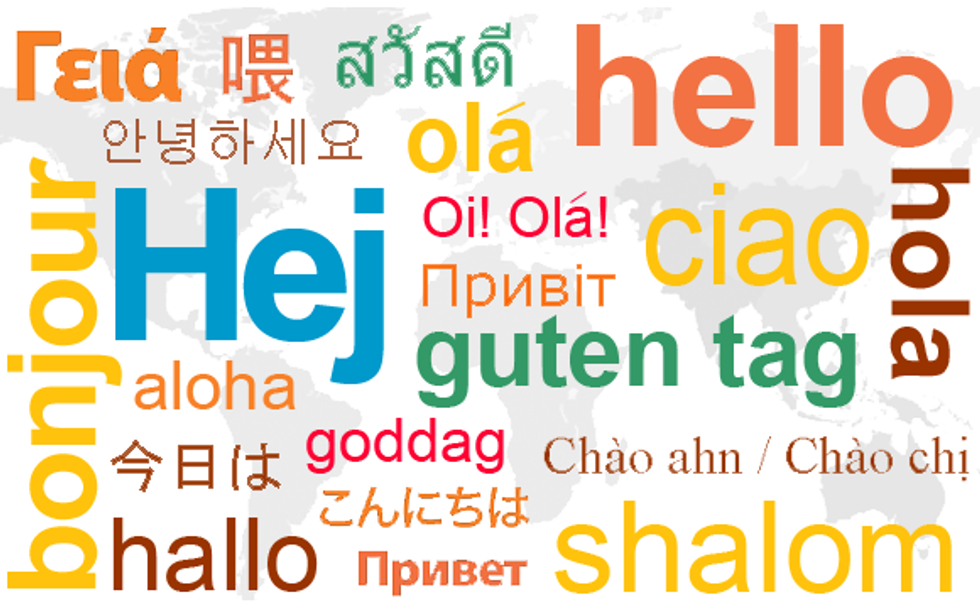If you are currently enrolled in an American university, chances are, you have probably had to take at least one 1000 level language class. Regardless of your major and minor, many universities require this as a part of your "liberal education" degree, tell you that it is part of being well-rounded culturally. For most people, however, this becomes just another hoop you have to jump through before you can get to the classes you really enjoy.
While I am a Spanish minor and happen to love the language, I still remember those struggles of the classes at the lower levels. I am also a tutor in the Language Lab at my school, and get to tutor students in the lower levels.
What you need to know is that no matter what you are struggling with, you are not alone; chances are that ten other people are struggling with that very thing right now and that ALL of us non-native speakers have struggled with it in the past!
So from one language learner to another (whether forced or voluntary), I present you a list of the struggles of learning another language.
1. The Alphabet
No matter what language you are learning, you are basically having to learn a whole new alphabet. At least with Romance Languages (Spanish, French, Italian, etc) the alphabet looks the same...
...DON"T BE FOOLED! All of the sounds are slightly different. Not to mention the alphabets of non-Germanic/Romance languages like Arabic, Russian, and Chinese. I understood Chemistry better than those alphabets...
2. Vocabulary
All of a sudden you are thrust back into a baby's level of understanding the world: "Me llamo Kate." "No me gusta escuela." Even the most basic of words are outside of your understanding and vocabulary, and those basic phrases that are crucial to everyday living? Yeah, those are more like impossible puzzles. Somedays you feel like you leave class more confused than you did when you came in.
3. Teachers
As if languages aren't hard enough, some people have the misfortune of having impossible teachers who speak in the language 100% of the time and won't switch to English even for a minute to help explain something. I have always had pretty helpful teachers, but I have heard of some like this. I understand that immersion is the best way to learn a language, but lets be real: the longer you speak in a language I don't know, the less I am going to be able to listen to you. Teachers, you don't have to speak in English all the time, but it would be nice if you explained important things that I need to know for my test in a way/language I can understand. Thanks.
4. Grammar
When learning English grammar, the focus is not on conjugating verbs. IN other languages, verbs are everything. Heck, if you conjugate the verb correctly you don't even have to include a subject. "Oh, wait... that one is irregular, it stem changes... but the "I" form is irregular too?!... Why can't these all be normal??"
5. Pronunciation
Welcome to French, where you only pronounce half of what you see.
6. Oral Exams
There is nothing more terrifying when, at the end of the semester, you have to show off what you know to your professor. What if you don't even understand the questions you are being asked? Let's hope you have a nice professor who will help you out by asking you the question again in a simpler way...
7. Group work
At my school, students must complete six labs per semester, four with a partner and two solo. This means that you have to meet with your partner, write a script, record your voices... etc. These labs are not only frustrating because you have use what little Spanish (or whatever language) you know to say more than you're used to but you also have to fight with the technology, which always seems to be working against you.
I hope you have found some comfort among friends in this article.
Good luck all you language learners!


















